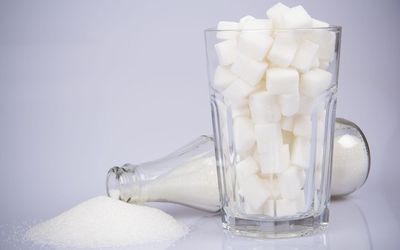THE Treasury has made good on Health Minister Aaron Motsoaledi’s threats to introduce a tax on sugar-sweetened beverages, saying on Wednesday that it planned to impose the levy next April.
The move is intended to reduce consumption of these drinks, which raise the risk of obesity and noncommunicable diseases. Obesity rates have soared around the world in the past 30 years and SA is no exception. In tandem with soaring obesity, there has been a worldwide surge in consumption of sweet soft-drinks.
"It is not about raising revenue. It is about making them more expensive and reducing consumption," the Treasury’s deputy director-general for tax and financial sector policy, Ismail Momoniat, said.
He said the tax would not be an isolated intervention but would need to be accompanied by "a package of measures", including education and regulation, as with tobacco control.
Mr Momoniat said details would be provided shortly, as the aim was to include the measures in the draft Taxation Laws Amendment Bill.
The tax is likely to run into stiff opposition from beverage companies, which have a strong presence in SA. The Beverage Association of SA, which was not available yesterday, has previously told Business Day a "discriminatory" tax is not an "effective measure because evidence shows consumers switch to different alternatives of the same or similar foods instead".
The Treasury’s chief director for health and social development, Mark Blecher, said there was growing evidence "environmental taxes" such as a sugar taxes could play an important role in promoting health, citing Mexico’s introduction of a 10% sugar tax.
Researchers found the average person purchased 4.2 litres less of sugar-sweetened drinks in 12 months since the tax was introduced in January 2014. The greatest reduction was among poor households, where consumption fell 17%.
A local study published in 2014 found a 20% tax on sugar-sweetened drinks could cut the number of obese South Africans by almost 250,000, saving lives and money. It said South Africans consume 12-24 teaspoons of sugar a day, about a third of which comes from sugar-sweetened beverages. One such drink typically contains eight teaspoons of sugar.
The study assumed a 20% tax on sugar-sweetened drinks would be passed on to consumers and reduce demand. The average daily energy intake per person would fall by 36kj, which would translate into 222,669 fewer obese adults.
"The cost of obesity and the complications caused by obesity-related diseases have a very serious financial impact on the family, caregivers and breadwinners," study co-author Karen Hofman said at the time.

Picture: ISTOCK
THE Treasury has made good on Health Minister Aaron Motsoaledi’s threats to introduce a tax on sugar-sweetened beverages, saying on Wednesday that it planned to impose the levy next April.
The move is intended to reduce consumption of these drinks, which raise the risk of obesity and noncommunicable diseases. Obesity rates have soared around the world in the past 30 years and SA is no exception. In tandem with soaring obesity, there has been a worldwide surge in consumption of sweet soft-drinks.
"It is not about raising revenue. It is about making them more expensive and reducing consumption," the Treasury’s deputy director-general for tax and financial sector policy, Ismail Momoniat, said.
He said the tax would not be an isolated intervention but would need to be accompanied by "a package of measures", including education and regulation, as with tobacco control.
Mr Momoniat said details would be provided shortly, as the aim was to include the measures in the draft Taxation Laws Amendment Bill.
The tax is likely to run into stiff opposition from beverage companies, which have a strong presence in SA. The Beverage Association of SA, which was not available yesterday, has previously told Business Day a "discriminatory" tax is not an "effective measure because evidence shows consumers switch to different alternatives of the same or similar foods instead".
The Treasury’s chief director for health and social development, Mark Blecher, said there was growing evidence "environmental taxes" such as a sugar taxes could play an important role in promoting health, citing Mexico’s introduction of a 10% sugar tax.
Researchers found the average person purchased 4.2 litres less of sugar-sweetened drinks in 12 months since the tax was introduced in January 2014. The greatest reduction was among poor households, where consumption fell 17%.
A local study published in 2014 found a 20% tax on sugar-sweetened drinks could cut the number of obese South Africans by almost 250,000, saving lives and money. It said South Africans consume 12-24 teaspoons of sugar a day, about a third of which comes from sugar-sweetened beverages. One such drink typically contains eight teaspoons of sugar.
The study assumed a 20% tax on sugar-sweetened drinks would be passed on to consumers and reduce demand. The average daily energy intake per person would fall by 36kj, which would translate into 222,669 fewer obese adults.
"The cost of obesity and the complications caused by obesity-related diseases have a very serious financial impact on the family, caregivers and breadwinners," study co-author Karen Hofman said at the time.














 News, views and analysis of Finance Minister Pravin Gordhan's 2016 budget
News, views and analysis of Finance Minister Pravin Gordhan's 2016 budget







Change: -0.47%
Change: -0.57%
Change: -1.76%
Change: -0.34%
Change: 0.02%
Data supplied by Profile Data
Change: -1.49%
Change: 0.08%
Change: -0.47%
Change: 0.00%
Change: -0.04%
Data supplied by Profile Data
Change: -0.34%
Change: 0.03%
Change: -0.10%
Change: -0.22%
Change: -0.81%
Data supplied by Profile Data
Change: -0.28%
Change: -1.15%
Change: -0.07%
Change: -1.21%
Change: -0.22%
Data supplied by Profile Data